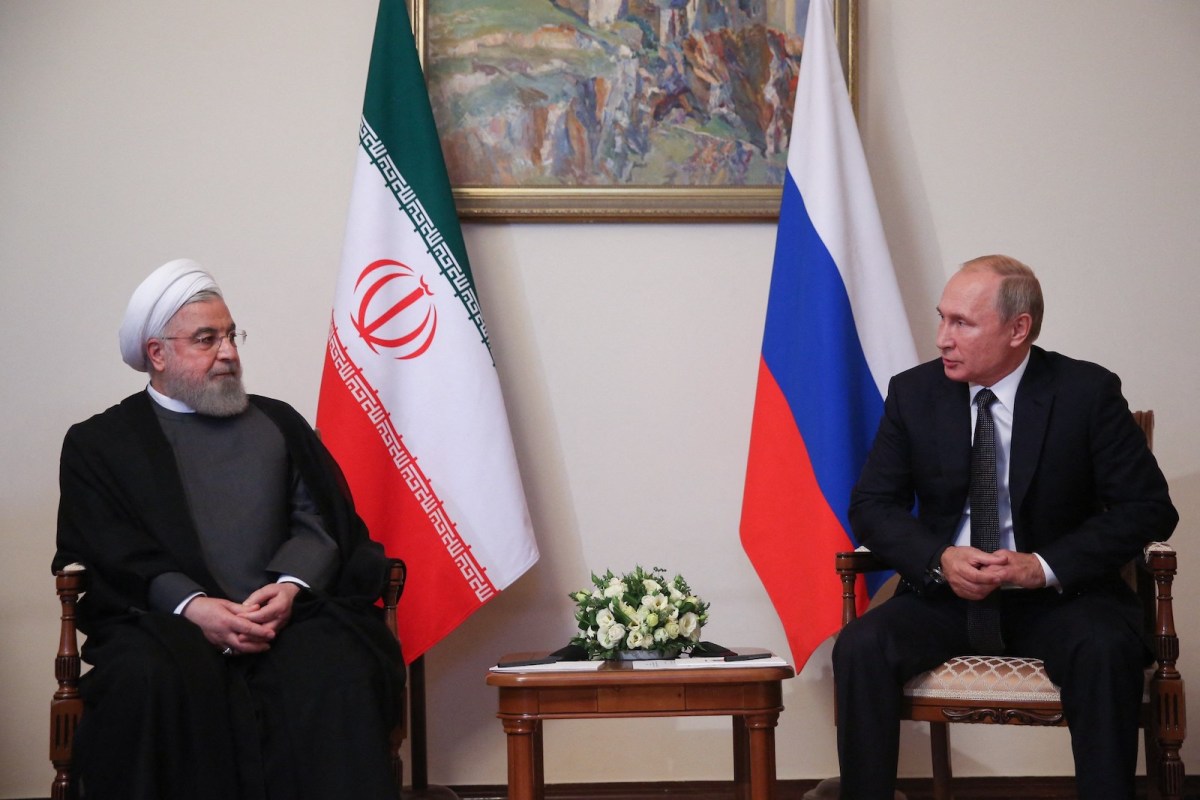Kourosh Ziabari – Asia Times: Iran’s top envoy has backpedaled on remarks he made privately in a taped oral history about the country’s hardline Revolutionary Guards (IRGC) and his ministry’s lack of real influence over the Islamic Republic’s foreign policy.
But while Foreign Minister Javad Zarif has made waves locally by claiming US-slain IRGC commander Qasem Soleimani interfered in the Joint Comprehensive Plan of Action (JCPOA), his revelations on Russia’s bid to scupper the 2015 nuclear deal could have a greater political impact.
The Donald Trump administration withdrew from the deal in 2018 and reimposed sanctions on Iran that have since strangled its economy. But momentum is slowly but surely building towards a possible revival of the JCPOA under the Joe Biden administration — raising new questions about how Russia may respond.
Zarif has spent the last week issuing apologies over the leaked three-hour interview, the controversial contents of which have been widely disseminated at home and abroad. The tape was smuggled out of Iran and released by the London-based Persian language broadcaster Iran International in an affair now known as “Zarif Gate.”
The incendiary interview, conducted in March, was commissioned by the Center for Strategic Studies affiliated with the office of President Hassan Rouhani and is part of a project to chronicle the tenure of Rouhani’s top ministers. The Foreign Ministry has said the tape was meant to be kept confidential.
Zarif, a centrist diplomat known for his key role in brokering the nuclear deal with six world powers including the US, China and European Union as well as his loyalty and closeness to Supreme Leader Ayatollah Ali Khamenei, throws caution to the wind in the tape.
He bluntly chided the IRGC for its counterproductive influence over Iran’s diplomatic apparatus and in particular undermining the JCPOA. He repeatedly hits out at what he called the “field,” standing for the IRGC and Iran’s militarist agenda.
“I have sacrificed diplomacy for the military field rather than the field servicing diplomacy,” he said. “This is not a dual governance. This is the governance of the field. It is the field that makes the decisions,” he lamented.
The US-educated Zarif also expressed thinly veiled criticism of hero-worshipped Soleimani, implying that he worked in lockstep with the Russians to thwart the JCPOA.
At home, the leaked tape has opened a Pandora’s box of problems for Rouhani’s lame-duck administration with new presidential elections due in June. Some hardliners say Zarif should be impeached while others are pushing for judicial action against him for disclosing state secrets.
Others have speculated the tape was intentionally leaked to a widely viewed TV station to sway public Iranian opinion in favor of reformists and against conservatives at the June presidential election.
On May 2, Supreme Leader Ayatollah Ali Khamenei made a televised speech in which, without naming names, he said some government officials had made comments that had caused “surprise and misfortune.” He said some of these comments mirrored the stance of Iran’s enemies, including the US.
Yet one of the interview’s biggest revelations concerns Russia, which is widely seen as an Iranian ally but is revealed as less so in the tapes. Zarif said Moscow had pulled out all stops to stop the JCPOA from being sealed and had presented several proposals during the talks that aimed to nip any agreement in the bud.
Zarif said Russia had arranged a trip to Moscow for Soleimani shortly after the JCPOA was signed and that Moscow did not liaise with the Iranian Foreign Ministry despite its central role in brokering the deal.
“When it is the determination of Russia to destroy the achievement of the [Iranian] Foreign Ministry, of course they won’t take action through the Foreign Ministry,” he said.

